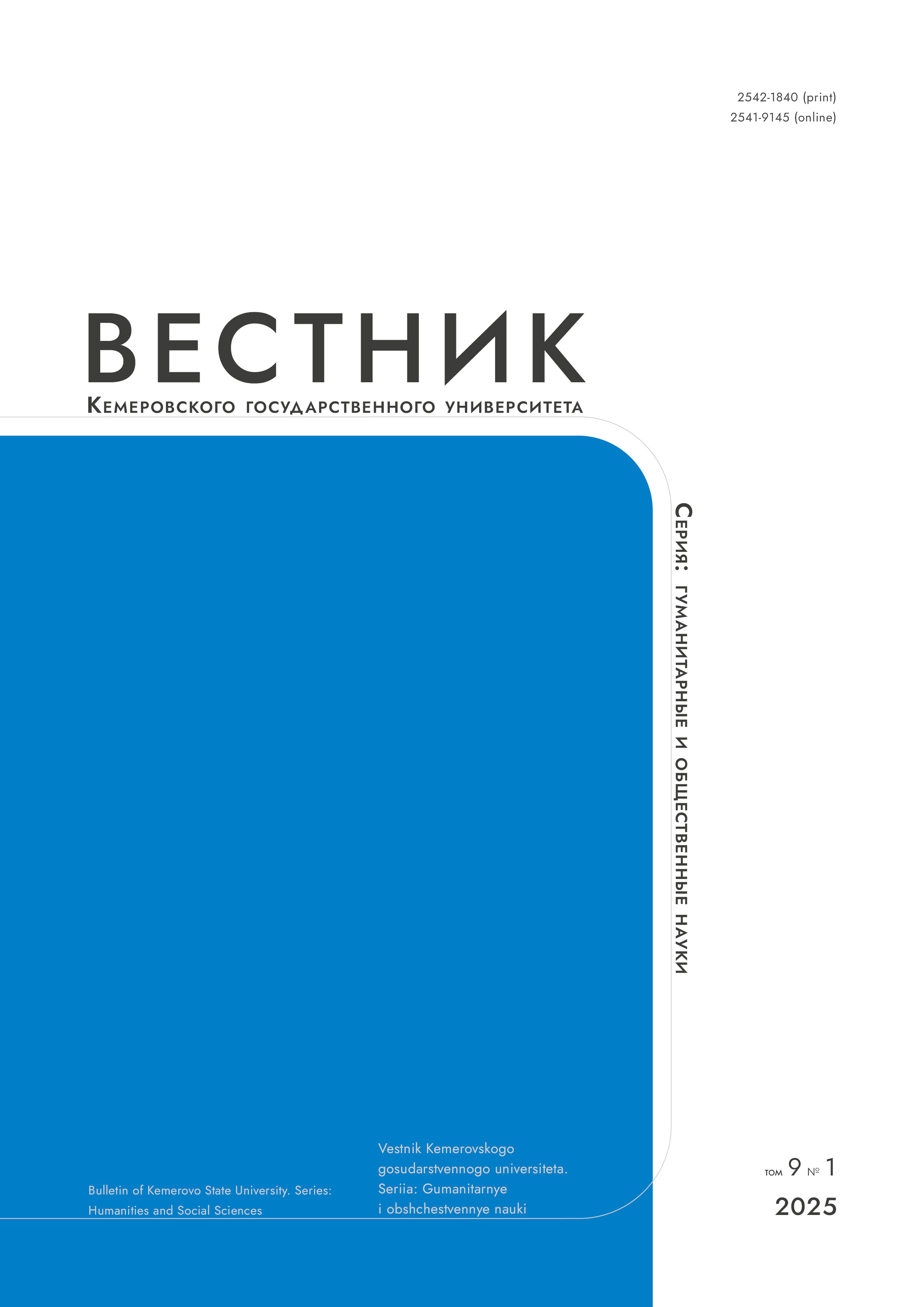Astrahan', Russian Federation
UDC 37
Dualism is a specific quality of approximation principle. The present research featured the potential of approximation principle for linguadidactics, namely to what degree it can be used to teach Russian as a foreign language and perform correction work in class. The research objective was to assess the efficiency of this principle. The study was based on the method of observation. The article introduces analyses of scientific linguadidactic literature and some typical situations of educational process. The author separates correction work from speech activity, i.e. talking, writing, and reading. The author believes that speech mistakes must be corrected immediately, involving the student in the correction process. Graphic facilities should be used to illustrate the norm. Therefore, in practical linguadidactics, approximation principle should be minimal. Yet, approximation is impossible to avoid in the abovementioned types of speech activity, which hints at the dualism of this principle. Therefore, all errors must be corrected using graphic means, if possible, by both the teacher and the student. Students should be encouraged to participate in the correction process, while the teacher maintains supervisory control.
Russian as a foreign language, error correction, graphic signs, student activity, conscious approach, language norm, interference
1. Shchukin A. N. Methods of teaching Russian as a foreign language. Moscow: Vyssh. shk., 2003, 333. (In Russ.)
2. Bogdanova T. G. The role of error correction in teaching foreign languages at business schools. Scientific Bulletin of the Southern Institute of Management, 2014, (4): 66-69. (In Russ.)
3. Akishina A. A., Kagan O. E. Learn to teach. For a teacher of Russian as a foreign language, 10th ed. Moscow: Rus. iaz. Kursy, 2018, 256. (In Russ.)
4. Live methodology for a teacher of Russian as a foreign language, comps. Arkadeva E. V., Vaishchnorene E. V. Moscow: Rus. iaz. Kursy, 2005, 334. (In Russ.)
5. Kapitonova T. I., Moskovkin L. V., Shchukin A. N. Methods and technologies of teaching Russian as a foreign language, 4th ed. Moscow: Rus. iaz. Kursy, 2018, 312. (In Russ.)
6. Kriuchkova L. S., Moshchinskaia N. V. Practical methods of teaching Russian as a foreign language. Moscow: Flinta; Nauka, 2011, 474. (In Russ.)
7. Chesnokova M. P. Methods of teaching Russian as a foreign language, 2nd ed. Moscow: MADI, 2015, 132. (In Russ.)
8. Arkharova M. G. Correction of mistakes in the process of teaching a foreign language: theory and practice. Prosveshchenie. Inostrannye iazyki, 2014. Available at: http://iyazyki.prosv.ru/2014/01/correction-mistakes/#more-14203 (accessed 03.09.2020). (In Russ.)
9. Balykhina T. M. Methods of teaching Russian as a non-native (new) language. Moscow: Izd-vo RUDN, 2007, 185. (In Russ.)
10. Galskova N. D. Modern methods of teaching foreign languages. Moscow: ARKTI, 2003, 189. (In Russ.)
11. Methods of teaching Russian as a foreign language, ed. Lysakova I. P. Moscow: Rus. iaz. Kursy, 2016, 320. (In Russ.)
12. Millrood R. P., Kondakova N. N. Theories of mistakes in the methodics of foreign languages teaching. Psikhologo-pedagogicheskij zhurnal "Gaudeamus", 2005, 1(7): 128-134. (In Russ.)
13. Morozov V. E. Methodology of a lesson in Russian as a foreign language, 2nd ed. Moscow: Ikar, 2017, 228. (In Russ.)
14. Solovova E. N. Methods of teaching foreign languages: a basic course of lectures. Moscow: Prosveshchenie, 2002, 238. (In Russ.)
15. Theoretical foundations of methods of teaching foreign languages in secondary school, eds. Klimentenko A. D., Miroliubov A. A. Moscow: Pedagogika, 1981, 456. (In Russ.)
16. Fedotova N. L. Methods of teaching Russian as a foreign language: a practical course. St. Petersburg: Zlatoust, 2013, 190. (In Russ.)
17. Shchukin A. N. Methods of teaching speech communication in a foreign language. Moscow: Ikar, 2011, 452. (In Russ.)
18. Shchukin A. N. Teaching foreign languages. Theory and practice. Moscow: Omega-L, 2010, 480. (In Russ.)
19. Zolotykh L. G., Lapteva M. L., Kunusova M. S., Bardina T. K. Methods of teaching Russian as a foreign language in the Chinese audience. Astrakhan: Astrakhanskii un-t, 2012, 90. (In Russ.)
20. Merkulova S. G. Modern approaches to correcting errors in oral speech in the study of a foreign language. Angliiskii iazyk, 2002, (45). Available at: http://eng.1sept.ru/article.php?ID=200204501 (accessed 02.06.2020). (In Russ.)
21. Davidenko N. A. Classification of reading errors in teaching a foreign language. Sovremennyi nauchnyi vestnik, 2008, (12). Available at: http://rusnauka.com/12_EN_2008/Philologia/31259.doc.htm (accessed 02.06.2020). (In Russ.)
22. Malinin A. B., Nefyodov O. V. Corerction of students' errors in foreign language teaching. Filologicheskii aspekt: mezhdunarodnyi nauchno-prakticheskii zhurnal, 2015, (7). Available at: https://scipress.ru/philology/articles/ispravlenie-oshibok-studentov-pri-izuchenii-inostrannykh-yazykov.html (accessed 02.06.2020). (In Russ.)
23. Tishulin P. B. Types of language errors and the possibility of their correction when teaching a foreign language. Izvestiya vysshikh uchebnykh zavedeniy. Povolzhskiy region. Gumanitarnye nauki, 2012, (1): 132-137. (In Russ.)


















